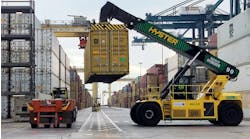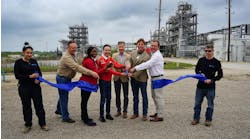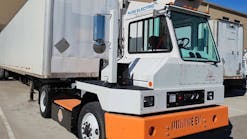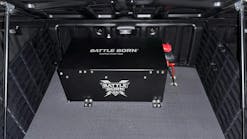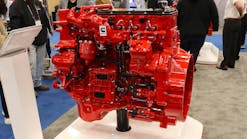Trimac Transportation and partners MEDATech and Teck Resources are nearing completion of their zero-emission Class 8 transport truck pilot project after nearly two years of continuous testing.
Launched in February 2023, the project showcased the potential to avoid approximately 170 metric tons of carbon-dioxide emissions and 62,000 liters of diesel fuel annually using an electric vehicle, the companies reported.
“This pilot project has demonstrated potential for significant environmental and economic benefits and showcased the operational viability of battery-electric heavy-duty trucks,” Abraham Masri, Trimac manager of energy transition and sustainability, said in a news release. “Real-world testing has highlighted its benefits and remaining challenges, alongside providing invaluable insights that will guide future advancements in sustainable heavy-duty transportation.”
The project involved a custom-built tractor unit on a Western Star 4900EX chassis with two Dana TM4 Sumo HP electric motors, producing 1,448 horsepower and 3,915 lb.-ft. of peak torque. Operating between Teck’s Highland Valley Copper operations in South Central British Columbia and a rail facility in Ashcroft, B.C., it represents the world’s first use of a battery-electric truck to haul copper concentrate and completes an average of 3.4 load cycles during daily 12-hour shifts, with charging taking 2 to 2.5 hours.
Despite slightly lower average load cycles compared to diesel trucks (3.4 vs. 4.4), the truck demonstrated strong performance and favorable feedback, with drivers citing its quiet operation, powerful torque response, and reduced gear-shifting requirements as key benefits, the companies said.
“The steep hill in Ashcroft provides an ideal testing ground for evaluating the truck’s capabilities, allowing it to recharge and maximize its efficiency,” said Taylor Caldwell, Trimac assistant area manager.
The project will conclude on Dec. 31 after further tests under winter driving conditions to assess battery performance, cab heater functionality, and operator safety. Following the pilot phase, Trimac and its partners will evaluate outcomes to determine feasibility of full-scale implementation.
